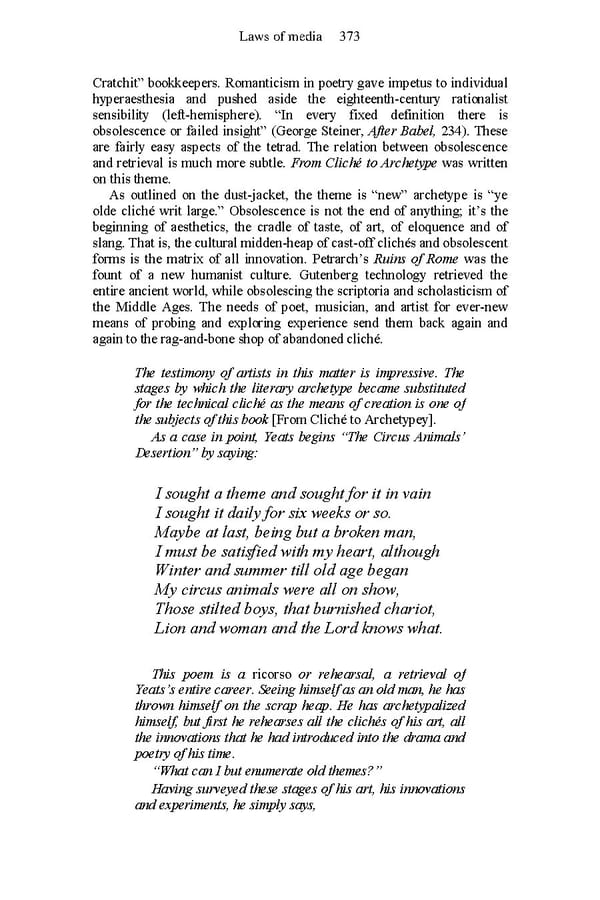Laws of media 373 Cratchit” bookkeepers. Romanticism in poetry gave impetus to individual hyperaesthesia and pushed aside the eighteenth-century rationalist sensibility (left-hemisphere). “In every fixed definition there is obsolescence or failed insight” (George Steiner, After Babel, 234). These are fairly easy aspects of the tetrad. The relation between obsolescence and retrieval is much more subtle. From Cliché to Archetype was written on this theme. As outlined on the dust-jacket, the theme is “new” archetype is “ye olde cliché writ large.” Obsolescence is not the end of anything; it’s the beginning of aesthetics, the cradle of taste, of art, of eloquence and of slang. That is, the cultural midden-heap of cast-off clichés and obsolescent forms is the matrix of all innovation. Petrarch’s Ruins of Rome was the fount of a new humanist culture. Gutenberg technology retrieved the entire ancient world, while obsolescing the scriptoria and scholasticism of the Middle Ages. The needs of poet, musician, and artist for ever-new means of probing and exploring experience send them back again and again to the rag-and-bone shop of abandoned cliché. The testimony of artists in this matter is impressive. The stages by which the literary archetype became substituted for the technical cliché as the means of creation is one of the subjects of this book [From Cliché to Archetypey]. As a case in point, Yeats begins “The Circus Animals’ Desertion” by saying: I sought a theme and sought for it in vain I sought it daily for six weeks or so. Maybe at last, being but a broken man, I must be satisfied with my heart, although Winter and summer till old age began My circus animals were all on show, Those stilted boys, that burnished chariot, Lion and woman and the Lord knows what. This poem is a ricorso or rehearsal, a retrieval of Yeats’s entire career. Seeing himself as an old man, he has thrown himself on the scrap heap. He has archetypalized himself, but first he rehearses all the clichés of his art, all the innovations that he had introduced into the drama and poetry of his time. “What can I but enumerate old themes?” Having surveyed these stages of his art, his innovations and experiments, he simply says,
 Essential McLuhan Page 379 Page 381
Essential McLuhan Page 379 Page 381